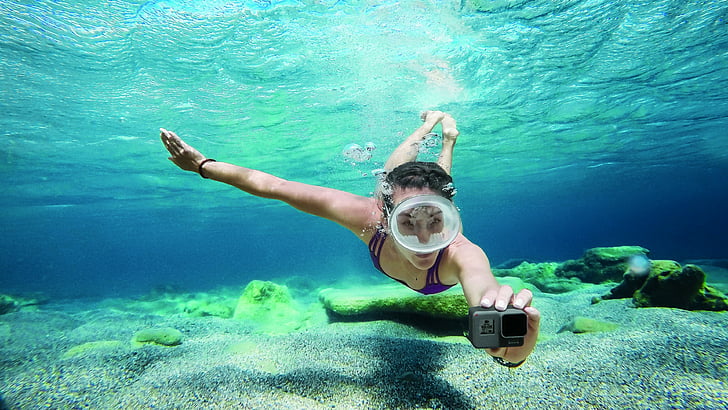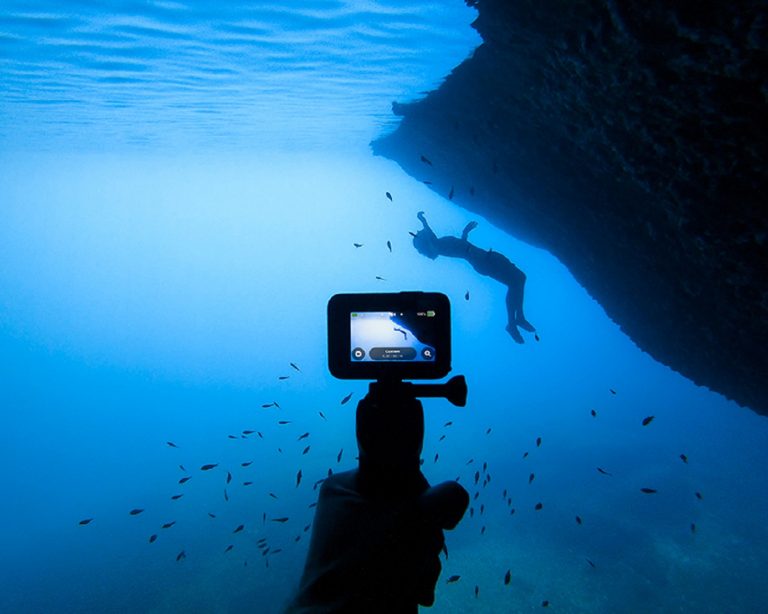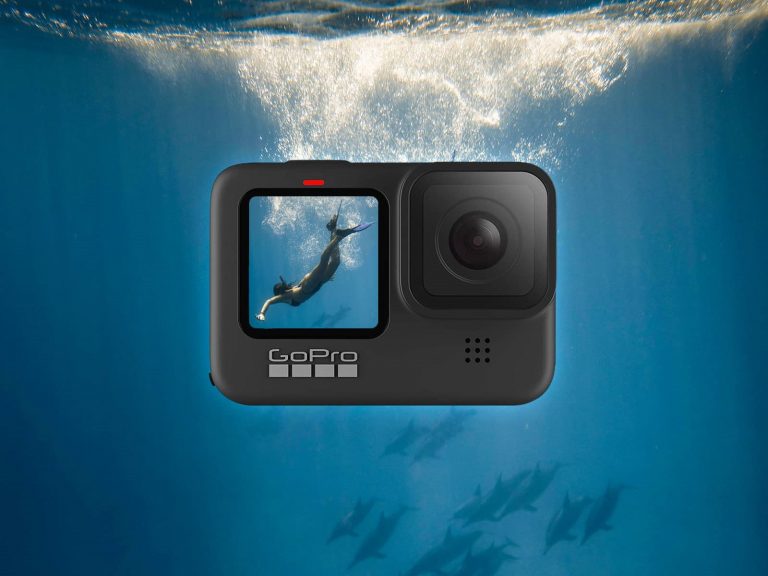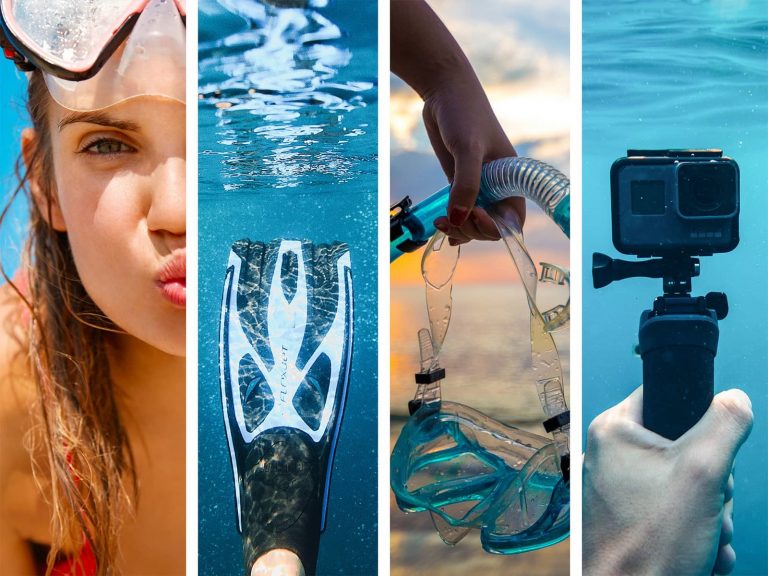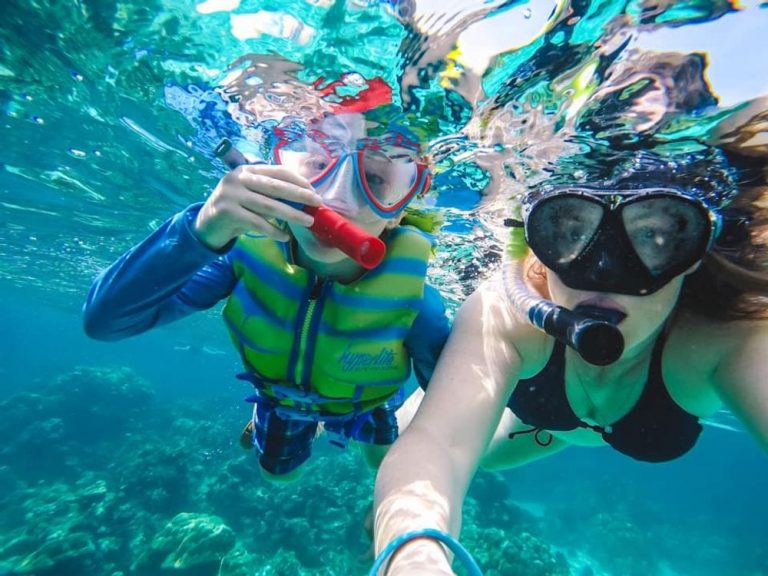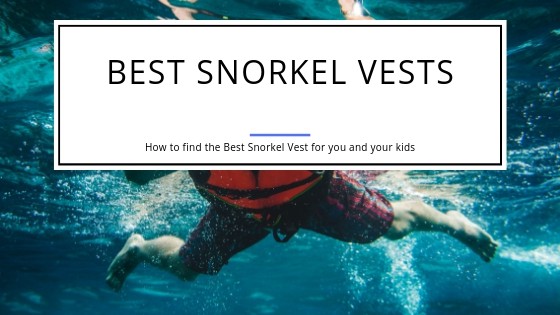Choosing the best snorkeling sunscreen is critical. Really!
Prioritizing your skin’s health is essential. Without proper sun protection, prolonged exposure to the sun (as is typical when snorkeling) can result in a sunburn. As if the agony weren’t enough, doing it regularly might lead to skin issues in the future.
Second, coral reefs across the world must stay in good condition. Coral reefs harbor a plethora of marine life and have a direct impact on ocean health. Still, they have been dropping in vitality and, in some cases dying off in large numbers in recent years, making their services less reliable than they once were. Traditional sunscreens may contribute to the reef’s demise since they include harmful ingredients to marine life.
A portion of the world’s seas has yet to be explored. Coral reefs may and do diverse support communities of marine life, including fish, rays, sea turtles, and many other marine organisms. They’re breathtaking to look at and provide a once-in-a-lifetime snorkeling adventure.
However, our choices in sunscreen contribute to the problem of coral reef decline. Sunscreens that protect both human skin and coral reefs are also readily available. All we need is a plan and some knowledge of where to look.
So let’s go through what to look for (and why) in the best quality snorkeling sunscreen, and then we’ll share our selections for the best snorkeling sunscreens I use every time I hit the water.
What to look for in sunscreen for snorkeling?
Water resistance is the essential feature of a snorkeling sunscreen. That makes perfect logic, as it would be worthless to us if it washed off the moment we entered the water.
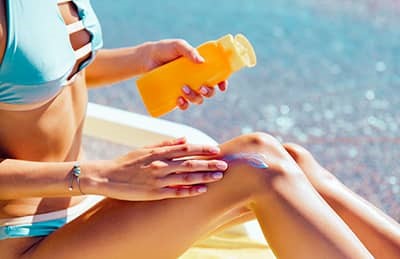
We need to choose a sunscreen that is water resistant, as no product can indeed be called “waterproof” (it doesn’t function that way). The period when anything is water resistant is also essential, and a good benchmark is sixty minutes.
Second, for the health of the seas, we must select a reef-safe snorkeling sunscreen. The package must clearly state that the product is “reef safe” for us to purchase.
And lastly, biodegradable sunscreens are the best snorkeling sunscreens. This labeling may not seem important if we use reef-safe sunscreen, but it guarantees that any sunscreen that washes off us degrades naturally and does not leave any chemicals behind in the ocean. Doing this is a fantastic service to the water.
Why reef-safe & biodegradable sunscreen matters
Scientists have investigated the causes of coral reef deterioration in depth in recent decades. Sobering results have been found frequently.
Traditional sunscreens contain several chemicals that can harm coral reefs. These include oxybenzone, octinoxate, benzophenone-8, and roughly six more. These chemicals can cause bleaching, DNA damage, deformities, and even coral death. In a word, that’s terrible for reefs.
However, many of these compounds used in sunscreens have been discovered to impact a wide variety of marine organisms directly. Reduced development and photosynthesis affect green algae (a type of ocean plant responsible for providing 50-85% of the oxygen for the entire globe [Source]).
Mutations in the reproductive system of mussels cause them to fail. When sea urchins’ immune systems are compromised, it leads to various health problems. Reproduction and fertility are both reduced in areas where fish are present. Chemicals are absorbed by dolphin tissue and passed on to offspring. That matters a lot.

It’s such a problem that several countries have banned sunscreens containing the harmful substances in question, including Hawaii [source] and Palau [source].
Eliminating the widespread use of sunscreens harmful to reefs and biodegrading slowly is also crucial. Overspray (or even general contact with my skin) may soak standard sunscreen into the sand, which will ultimately wash into the ocean if I don’t use a water-resistant sunscreen.
As another example, the sunscreen I use and then wash off in the shower can quickly enter storm drains, rivers, and the ocean. Therefore, using high-performance, reef-safe, biodegradable sunscreen is essential.
We must take measures to safeguard our skin and the water we love if we are to continue to enjoy the sport of snorkeling. You won’t have to choose between comfort and protection when you get the best snorkeling sunscreens.
The best snorkeling sunscreens
Alba Botanica Sensitive SPF 50 sunscreen
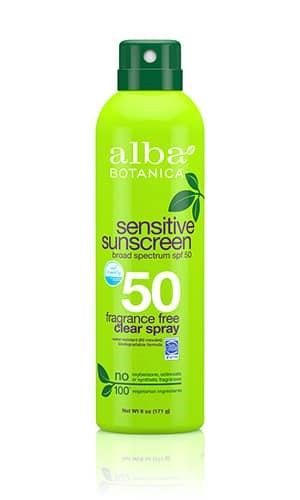
Having tried other reef-safe sunscreens over the years, I can confidently say that Alba Botanica’s Sensitive SPF50 sunscreen is the best I’ve ever used when snorkeling.
For starters, I can confirm the effectiveness of sun protection. The sunscreen’s high Sun Protection Factor (SPF) rating has effectively shielded my skin from harmful UV radiation. In addition, it can withstand water for up to 60 minutes, allowing me to do a lot of snorkeling without worrying about reapplying.
It is also officially biodegradable and won’t harm coral reefs. Discovering both in a very effective sunscreen has been a game-changer for my skin. I won’t have to worry about becoming sunburned, and I won’t have to worry about causing any harm to the water by using sunscreen.
Also, I’m not a fan of sticky sunscreens that you have to put on, so the spray version is ideal for me. I spray it on evenly, holding my breath, so none of it gets in my mouth or nose, then wait a few minutes before diving in. Unlike other choices, this one doesn’t leave me feeling sticky or oily.
The Alba Botanical sunscreen has been my go-to for years, and I couldn’t be happier with its performance in the water. It’s easy to get on Amazon and delivered to your door in time for your next snorkeling vacation, and the price difference from ordinary sunscreens is minimal. If you plan on doing a lot of snorkeling, I suggest getting the three-pack to save money on each bottle.
Safe Sea Sunscreen & Jellyfish Sting Protective Spray
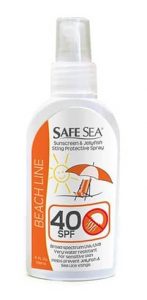
Safe Sea’s Sunscreen & Jellyfish Sting Protective Spray is something I usually highlight as a unique “honorable mention” while discussing the BEST SNORKELING SUNSCREENS.
You probably guessed correctly that it also serves as a reef-safe sunscreen, a jellyfish repellent (and other things like sea lice). This is a fascinating concept.
Nearly every review says, “I used it and wasn’t stung by anything. It could have been the sunscreen, and it could have been nothing. The possibility is intriguing, even if there is no way to confirm it.
Sea lice (those microscopic creatures that don’t damage you but feel like pins and needles on your skin while you swim) aren’t as bothersome when I’m not wearing it.
Although I don’t know much about jellyfish, when I’m in an area with them, I always wear some protective gear (though I don’t go snorkeling if there are more harmful varieties because that’s simply smart). Sure, why not? Check out our complete guide about What snorkel gear should I buy?
The best snorkeling sunscreens for kids
Goddess Garden Mineral Sunscreen
There are a few reasons why choosing the best snorkeling sunscreen for kids is more important than ever.
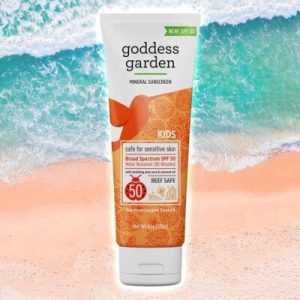
There has to be a sunscreen that provides excellent sun protection without irritating the skin, as children’s skin is significantly more delicate.
Since children are notoriously difficult to corral and get to sit still for sunscreen application, we’d like a product that provides excellent water resistance without being unpleasant to apply and lasts for as long as possible before needing to be reapplied.
Because kids are notoriously difficult to contain and get to sit still for any application. With these criteria in mind, I found Goddess Garden’s Mineral Sunscreen to be the best snorkeling sunscreen for kids.
First, it features a very high sun protection factor (SPF50). Shea butter, essential oils, coconut oil, and similar components are used because of their milder effect on the skin. Protecting children’s skin from the sun and other environmental hazards is a priority.
Furthermore, it has a high water-resistant rating of 80 minutes, so you won’t have to continually flag down your kids and push for a new coat of sunscreen. It is enormous when all you want to do is chill on the beach, or even if you want more time for fun with them in the water.
It has a pleasant aroma and doesn’t feel gross or oily, making it much simpler to win over reluctant young consumers. The Goddess Garden Mineral Sunscreen is my top selection for the best snorkeling sunscreen for kids since it is hypoallergenic and won’t harm coral reefs (and, honestly, it works great for adults who might prefer a rub-on sunscreen, too).
Bonus: the best rashguards
A rashguard, a form of form-fitting water clothing that may be worn when snorkeling, is another item I always recommend in addition to the BEST SNORKELING SUNSCREENS.
Sun protection is greatly enhanced by using a rash guard. When I’m snorkeling, my back and shoulders are almost always facing the sun, which can be dangerous if I don’t constantly reapply sunscreen. Instead, I can relax knowing that my rashguard protects any exposed skin.
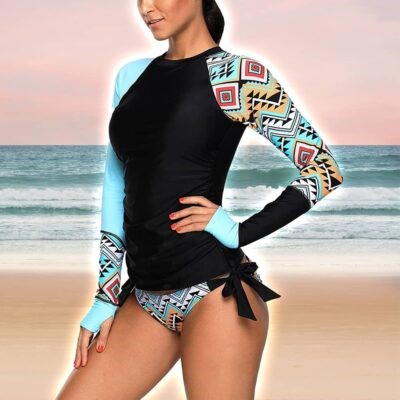
That’s fantastic news for my skin, and it also means I may reduce my sun protection regimen (though obviously, be sure to cover any exposed skin with reef-safe sunscreen).
Years ago, I bought my partner the Volcom Men’s Lido Solid Short Sleeve Rashguard (view on Amazon). It’s been great for him in the water, and the short sleeves allow him more mobility. When it comes to rashguards, I always recommend the REKITA Women’s Long Sleeve Rashguard (view on Amazon)
For women, it offers excellent protection and adds extra warmth where she needs it most: the arms and hands.
The Kanu Surf Platinum rashguard for boys (Amazon) and the Kanu Surf Keri version for girls (Amazon) are two of my favorite kid rashguards.
Both are very simple to maintain, have a wide variety of colors to choose from, and provide good sun protection (SPF50+) (throw them in the wash). Ultimately, they go a long way toward protecting kids’ skin from the sun in the pool and on the beach.
Conclusion
It’s easy to overlook that the Best snorkeling sunscreen we use directly impacts the well-being of coral reefs, starfish, dolphins, and other marine life.
Luckily, it’s simple to select reef-safe and biodegradable sunscreen (and other sun protection) that is great for snorkeling with just a little background information. I raise a glass to your skin’s longevity and the reefs’ resilience, which will allow you to enjoy many more years of snorkeling!


